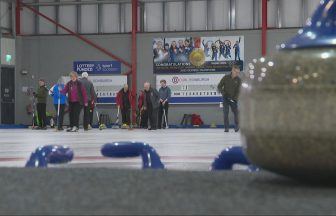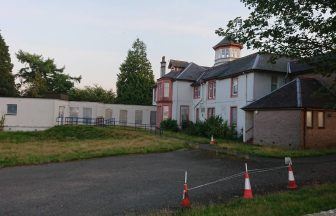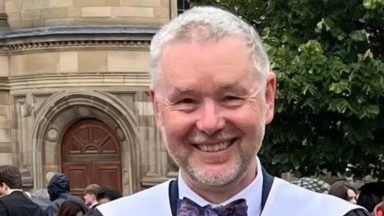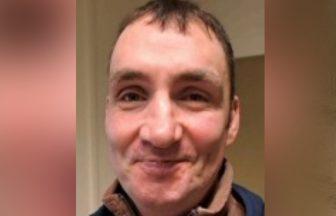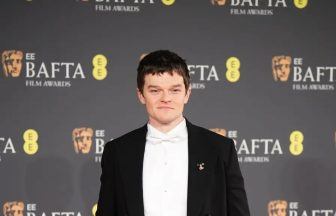A dad who murdered his infant son to get revenge against his former partner for ending their relationship has been jailed for life.
Lukasz Czapla, 41, shot, stabbed and smothered two-year-old Julius at his home in Edinburgh in November 2020 to get back at the child’s mum Patrycja Szczesniak.
The high court in the city heard how Ms Szczesniak had split from Czapla in June that year but was happy to allow him to look after Julius.
However, on the night of November 20, 2020, she told Czapla that she was seeing somebody else in a text message.
This prompted him to send her a series of bizarre texts asking her about her new partner and her sex life.
The court heard how Ms Szczesniak refused to respond to the messages.
Czapla, who had spent the evening drinking beer, downed anti depressants with wine. He then decided to shoot Julius three times in the head with a gas powered air pistol.
Three ball bearings were later recovered from his head.
He then stabbed the toddler with a metal skewer before smothering him with a pillow leaving Julius lying lifeless in his house in the Muirhouse area of Edinburgh,
The court heard how Ms Szczesniak then discovered her son’s remains the following day.
Czapla, who kept quantities of mind bending LSD at the house at the same time he was looking after Julius, then left the property.
He drove away, committing road traffic offences as he tried to flee.
Czapla claimed he suffered from poor mental health at the time he killed Julius and it was so bad that it affected his actions and he acted out of character.
His lawyer Iain McSporran QC argued that his client’s health condition was such that he should be convicted of culpable homicide and not murder.
One psychiatrist told the court that Czapla did have poor mental health – but his depression wasn’t so bad that it made him commit murder. He described Czapla’s actions as “narcissistic” and “entitled”.
On Wednesday, jurors took three hours to conclude that Czapla was indeed guilty of murder.
This prompted Judge Lord Beckett to jail Czapla for a minimum of 23 years. He will be released once the parole board consider he no longer poses a threat to public safety.
The judge also imposed concurrent sentences for road traffic and drugs offences.
Passing sentence, Lord Beckett said that Czapla’s use of drink and drugs provided him with “no excuse” for what he did to Julius.
Czapla sat in the dock wearing a surgical mask between two security officers with his head bowed as the judge delivered his sentence.
He added: “Your son will never grow up and his loving mother has lost him forever and will forever be haunted by the truly evil act that you did.
“You acted out of spite to punish his mother for leaving you and getting on with her life.
“Suffice to say you showed considerable determination to ensure that a defenceless child would die in considerable distress.
“It is no excuse that you were full of drink and drugs. Indeed it is significantly aggravated given that you were being asked to look after a two-year-old.”
During proceedings, the court heard Joanne Gorrie, 27, describe the moment Ms Szczesniak discovered her son’s body.
She said she “screamed” for help because her former partner “killed” her “baby”.
She said that she and Patrycja had gone into Czapla’s house on the morning of November 21, 2020.
She told jurors that Czapla, from the Gdansk area of Poland, had a “little bit of blood” on his face.
She said Ms Szczesniak had then looked into a room and came out moments later “screaming”.
Describing the moment, the witness told prosecutor Alan Cameron: “Patrycja started screaming. She started shouting ‘my baby, my baby, he killed my baby. Please help my baby.’
Ms Gorrie said she had thought Czapla had been a good father and that the trio made for a “good family”.
She said that he had earlier told her that he had split from Ms Szczesniak.
Describing that moment, Ms Gorrie said: “He said ‘she is not my wife. We are not together anymore. She is a bitch’.
“We said to him ‘why are you not together?’ He said ‘baby cause problems.”
Ms Szczesniak said that she later drove straight to Czapla’s flat after receiving a text message he had sent her in which he threatened to take his life and Julius’ life.
After knocking on the door she saw her former partner staggering and bloody after looking through a letterbox.
She said “When I saw him covered in blood I started shouting and kicking the door.”
She told police that when she got into the property she asked Czapla where Julius was and he indicated a bedroom.
She said her son was on a bed in the room. “His head was covered in blood and his face was blue. I knew he was dead,” she said.
She said she managed to get out the door of the flat and shouted to a neighbour to call the police saying: “He has killed Julius.”
Police feared that Czapla had a mental health condition that had left him with diminished responsibility. But medical health professionals started to have doubts about whether he had mental health problems.
Consultant psychiatrist Dr Deborah Mountain told the court how she’d interviewed the accused after Julius lost his life.
She said the interview took place whilst Czapla was in custody at St Leonard’s Police Station.
The accused told Dr Mountain that he had separated from his partner about six months ago and he said that the separation was “brutal”.
Dr Mountain said that the accused appeared to be more concerned about his own future than the death of his child.
She said: “He was more pre-occupied about what was going to happen to him.”
She told the jury that she concluded there was no evidence of him being mentally ill or having a mental disorder.
Consultant forensic psychiatrist Dr Alexander Quinn spoke to Czapla following the death of Julius.
He concluded that Czapla’s actions showed that he had carried out a “narcissistic and entitled” act. He also concluded that Czapla did have depression but it wasn’t serious.
When Mr Cameron asked Dr Quinn to explain why he believed Czapla’s actions were “narcissistic”, the psychiatrist spoke of text messages that the accused had sent to people.
He said: “When describing something as narcissistic – that was my meaning, the text messages seemed to return back to his own experiences.”
Dr Quinn also said that he believed Czapla was of good enough health to stand trial.
Detectives also managed to find other evidence that showed that Czapla’s actions were deliberate.
His childhood friend Wojciech Marchlewski, 41, said that Czapla had “joked” about killing the child in November 2020.
The pair had got together to have a beer and Mr Marchlewski said he was shocked by what he had heard.
He said: ““He joked about killing Julius. He laughed at the end of it.
“I said ‘it’s an extremely bad joke’. I felt so awkward but at the same time it didn’t surprise me because Lukasz used to joke like this.”
“I said ‘it’s not funny. It’s a bad joke.’ He acknowledged it saying ‘I know’.
The court heard on the night that Julius died, Ms Szczesniak had told him she was seeing somebody new.
This prompted Czapla to send her four text messages that contained questions asking her about her new relationship.
In his closing speech, Mr Cameron said it was Ms Szczesniak’s refusal to engage that prompted Czapla to attack Julius.
He said: “The accused sent four separate messages during the course of 10 minutes in which he asked her about her sex life and with reference to a graphic sexual act.
“Again, I suggest that what really set him off that night, what p***ed him off, what infuriated him – to use his own language – was her refusal to answer questions about her new partner and their sex life – not about her son at all.
“All these factors, I suggest point away from the altruistic motive and towards the alternative put forward by Dr Quinn – that of revenge and jealousy.”
Czapla told jurors that he assaulted Julius because he had decided to end his own life and didn’t want to leave the child alone.
He told the court that he had cut his own wrists and shot himself in the chest.
Czapla also told jurors how he also took all of the medication that doctors had given him for poor mental health and drank wine, saying he did that because he “didn’t want to live”.
He decided suicide was the only option available to him.
The witness was caring for his son, who had been playing with Lego in the hours before he died.
The court heard that Czapla then thought about how he discovered his father’s dead body when he was a young boy living in Poland. He said he didn’t want his son to have the same upsetting experience.
Czapla started crying as he told defence advocate Iain McSporran QC: “I know it sounds not very logical but in a sense I completely gave up and I didn’t see any point in living.
“I thought about him and I thought about me, that I was dying and I wouldn’t be there to support him.
“He relies upon me so much. I always wanted to be here to provide for him and support him. I was scared. I didn’t want to leave him alone.
“I thought about my father. I remembered about my father. I thought that Julius would discover me like this and he would have nobody to support him and I thought I would have to take him with me.
“At that point my judgement I did not want him alone in a terrible life. I shot him in the head.”
Mr McSporran then said: “He was asleep?”
His client responded: “Yes.”
Following conviction, Mr Cameron told the court that Czapla had one previous conviction for a road traffic matter in 2010.
He also told the court that Ms Szczesniak “simply felt unable” to complete a victim impact statement detailing the loss that Julius has had on her life.
McSporran told the court: “He stands convicted of the most appalling crime of murder of his own young son.
“A dreadful crime which brought an end to the life of that young boy and has destroyed lives of others.
“For what it’s worth that includes his own.”
Lord Beckett thanked jurors for their service and excused them from serving on a jury for 10 years.
He also offered jurors who may have been traumatised by the evidence the opportunity of receiving counselling.
Lord Beckett added: “Those of us who work in these courts and the people in this trial who have been working in these courts for many years are familiar with some of the most awful aspects of human behaviour.
“But even with the considerable experience around the table in this case, I suspect this case perhaps exceeds the awfulness of so many other cases that we hear.
“Judges and lawyers are somewhat hardened to this. We learn to compartmentalise our feelings about these things – we are human too.
“We don’t like it very much too ladies and gentlemen of the jury. We are used to it and we have strategies to deal with it.
“There can be nothing in your lives that could have prepared for this experience and I don’t doubt that it perhaps has taken quite the toll on you listening to such dreadful occurrences, such terrible violence inflicted on a young and defenceless child for no good reasons and for really bad reasons it seems.
“I should explain to you that if anyone feels that they could benefit from counselling that can be made available to you.
“You have gone about your task in this very difficult trial in a throughly commendable and admirable way – I want to thank you for that.”
Czapla was taken from court to begin his jail sentence.
Follow STV News on WhatsApp
Scan the QR code on your mobile device for all the latest news from around the country


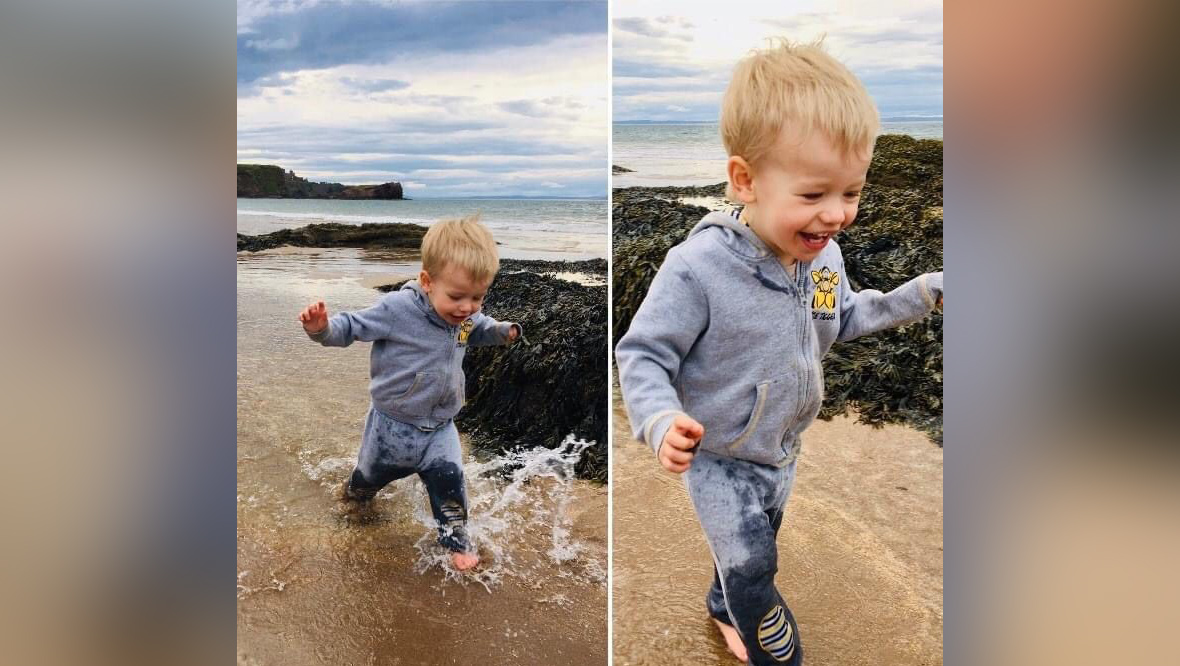 Police Scotland
Police Scotland














